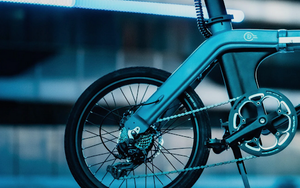Do you need a licence for electric scooters in the UK?
Nov 22, 2023
List of Contents
- Do you need a licence for electric scooters in the UK?
- Understanding the basics of electric scooters
- Different types of electric scooters
- The legal status of electric scooters in the UK
- Licensing requirements for electric scooters
- Safety measures for electric scooter users
- The future of electric scooters in the UK
- Conclusion
Do you need a licence for electric scooters in the UK?
Electric scooters have become increasingly popular in recent years as a convenient and eco-friendly mode of transportation. However, if you're considering getting one, you may be wondering about the legal requirements. Do you need a licence to ride an electric scooter in the UK? In this article, we will explore the basics of electric scooters, the current legal status in the UK, licensing requirements, safety measures, and the future of these vehicles.
Understanding the Basics of Electric Scooters
Before we delve into the legalities, let's start by understanding what electric scooters are. An electric scooter, also known as an e-scooter, is a two-wheeled vehicle powered by an electric motor. They are typically lightweight and designed for short-distance urban commuting. Electric scooters offer a convenient and eco-friendly alternative to traditional modes of transportation.
What is an Electric Scooter?
An electric scooter is a personal transport vehicle that relies on a battery-powered electric motor for propulsion. They usually have a deck or platform for standing, handlebars for steering, and a battery pack to provide power to the motor. The speed and range of electric scooters vary depending on the model and battery capacity.
Electric scooters have gained popularity in recent years due to their ease of use and affordability. They are often equipped with features such as regenerative braking, which helps to recharge the battery while slowing down, and LED lights for increased visibility during night rides. Some models even come with built-in Bluetooth speakers, allowing riders to enjoy their favourite tunes while cruising around. The Ducati Pro-II Evo Electric Scooter offers all-round performance, with Bluetooth connectivity and LED front and rear lights.
One of the advantages of electric scooters is their compact size and portability. Most models can be easily folded and carried, making them ideal for commuters who need to combine different modes of transportation. Whether it's hopping on a train or storing it under a desk at work, electric scooters offer flexibility and convenience. The Inokim Quick 4 Super E-Scooter is a firm favourite of commuters.

Different Types of Electric Scooters
There are various types of electric scooters available in the market. Some are designed for commuting, while others are meant for recreation.
Commuter Electric Scooters
Commuter electric scooters are built with features like lights, fenders, and larger wheels for enhanced stability and safety on city roads. They are designed to provide a smooth and comfortable ride, even on uneven surfaces. The Aprilia eSR2 Evo Electric Scooter offers powerful acceleration with a lightweight frame, making it a perfect commuter electric scooter.
Recreational Electric Scooters
On the other hand, recreational electric scooters often have larger, more powerful motors and are built for off-road adventures. These scooters are equipped with knobby tires, sturdy frames, and suspension systems to tackle rough terrains with ease. They are perfect for those who enjoy exploring nature trails or going off the beaten path. The Ducati Scrambler Cross E-Scooter conquers dirt roads and off-roading with ease.
Delivery Electric Scooters
In recent years, electric scooters have also become popular among food delivery riders. With the rise of online food delivery services, many riders have turned to electric scooters as a means of efficient transportation. These scooters are specially designed with features like insulated food delivery boxes and phone holders to cater to the needs of delivery professionals.
Public Electric Scooters
Furthermore, electric scooters are not just limited to personal use. Many cities around the world have implemented electric scooter-sharing programs, allowing residents and tourists to rent scooters for short trips. These shared scooters are equipped with GPS tracking systems and can be easily located and unlocked using smartphone apps.
Overall, electric scooters have revolutionised the way we commute and explore our surroundings. With their eco-friendly nature, ease of use, and versatility, they have become a popular choice for many individuals seeking a convenient and efficient mode of transportation.
The Legal Status of Electric Scooters in the UK
As of now, the legal status of electric scooters in the UK is a bit complicated. They are classified as Personal Light Electric Vehicles (PLEVs), and their use on public roads is subject to certain restrictions.
Current Laws and Regulations
Under current UK law, electric scooters are only legal to use on private property with the landowner's permission. Riding them on public roads, cycle paths, and pavements is illegal. However, there are ongoing trials in select cities to explore the feasibility of legalising electric scooters as a mode of transportation.
Penalties for Non-Compliance
If you are caught riding an electric scooter on public roads or pavements, you could face penalties that include fines, penalty points on your driving licence, or even disqualification from driving. It's essential to adhere to the current regulations and avoid any illegal use of electric scooters.

Licensing Requirements for Electric Scooters
The current legislation does not require a specific licence to ride an electric scooter in the UK. However, there are important considerations to keep in mind regarding age restrictions and insurance obligations.
Age and Licensing
While no driving licence is required, there are age restrictions for riding electric scooters on public roads. Currently, you must be at least 16 years old to ride an electric scooter legally on public or private land.
Insurance and Tax Implications
Electric scooters in the UK are not required to have insurance or pay road tax, as they are not classified as motor vehicles. However, it's always a good idea to consider insuring your electric scooter to protect against theft or damage. Some companies offer specific insurance policies for personal electric vehicles.
Safety Measures for Electric Scooter Users
Ensuring the safety of electric scooter users is vital for both riders and other road users. Here are some essential safety measures to consider:
Essential Safety Gear
When riding an electric scooter, it's crucial to wear protective gear, including a helmet, elbow and knee pads, and sturdy footwear. This safety equipment can significantly reduce the risk of injuries in case of accidents or falls.
Safe Riding Practices
Safe riding practices are essential to minimise accidents and ensure the safety of everyone on the road. Always follow traffic rules and signals, use designated cycle lanes whenever possible, and be aware of your surroundings. Within the last year, there have been over 1,400 reported collisions involving electric scooters, of which approximately 1,140 electric scooter users were injured. It's, therefore, crucial to ride defensively, anticipate potential dangers, and maintain a reasonable speed.

The Future of Electric Scooters in the UK
While the current legal landscape restricts the use of electric scooters in the UK, there are discussions and proposed changes that could reshape the future of these vehicles.
Proposed Changes to Legislation
The UK government is actively considering changes to the law to incorporate electric scooters as a legal mode of transportation. This could involve creating specific regulations, introducing licensing requirements, and establishing safety standards for electric scooter use on public roads.
Impact on Urban Mobility and Environment
If electric scooters are legalised, it could have a positive impact on urban mobility and the environment. Electric scooters offer a greener alternative to cars and could help reduce congestion and air pollution in cities. They can provide a convenient last-mile solution, complementing existing public transportation networks.
Conclusion
In conclusion, the current laws in the UK prohibit riding electric scooters on public roads, cycle paths, and pavements. Licensing requirements are currently not in place, but age restrictions and insurance considerations apply. Individuals must prioritise safety by wearing protective gear and practising safe riding habits. While the future of electric scooters in the UK is uncertain, proposed changes to legislation could pave the way for their widespread use, promoting urban mobility and reducing environmental impact.






